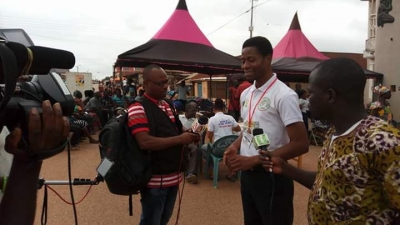COUNTRIES SHOULD HAVE LEGAL FRAMEWORK THAT CRIMINALIZES THE PRACTICE OF FGM IN ALL ITS FORMS, FOHA CEO
Female genital mutilation (FGM) comprises all procedures that involve altering or injuring the female genitalia for non-medical reasons and is recognized internationally as a violation of the human rights, the health and the integrity of girls and women. FOHA pleadges its supports and commitment towards having a legal framework in all countries that CRIMINALIZES the Act and practice of FGM and promote programmes that empowers the Youth especially girls within their teens who falls victims of this barbaric act and practice. Share this article as we ENDFGM by 2030.
Girls who undergo female genital mutilation face short-term complications such as severe pain, shock, excessive bleeding, infections, and difficulty in passing urine, as well as long-term consequences for their sexual and reproductive health and mental health.
Although primarily concentrated in 30 countries in Africa and the Middle East, female genital mutilation is a universal problem and is also practiced in some countries in Asia and Latin America. Female genital mutilation continues to persist amongst immigrant populations living in Western Europe, North America, Australia and New Zealand.
To promote the elimination of female genital mutilation, coordinated and systematic efforts are needed, and they must engage whole communities and focus on human rights, gender equality, sexual education and attention to the needs of women and girls who suffer from its consequences.
2020 Theme: Unleashing Youth Power
In 2012, the UN General Assembly designated February 6th as the International Day of Zero Tolerance for Female Genital Mutilation, with the aim to amplify and direct the efforts on the elimination of this practice.
Ending female genital mutilation in one decade will require support from every quarter. With significant population growth, especially among youth, investing in young people becomes indispensable. That is why this International Day will focus on mobilizing youth around the eliminations of harmful practices, including female genital mutilation under the theme: "Unleashing Youth Power: One decade of accelerating actions for zero female genital mutilation."
UN Action
Although the practice has been around for more than a thousand years, there are reasons to think that female genital mutilation could end in a single generation. That is why the United Nations strives for its full eradication by 2030, following the spirit of Sustainable Development Goal 5.
Since 2008, UNFPA, jointly with UNICEF, leads the largest global programme to accelerate the elimination of female genital mutilation. The programme currently focuses on 17 countries in Africa and the Middle East and also supports regional and global initiatives.
Over the years, this partnership has seen significant achievements. For instance, more than 3.3 million girls and women supported by the Joint Programme have benefited from female genital mutilation-related protection and care services, and 13 countries have established legal frameworks for banning female genital mutilation and have established national budget lines funding programmes to address it.
#EndFGM #YouthEndFGM
Did You Know?
In 2020 alone, there are 4.1 million girls around the world are at risk of undergoing female genital mutilation.
According to UNFPA, the cost of preventing female genital mutilation is $95 per girl today.
30 countries where female genital mutilation is prevalent are experiencing high population growth, with at least 30 per cent of girls undergoing female population under the age of 15.
Young people aged 15 to 19 in countries where female genital mutilation is prevalent are less supportive of continuing the practice than are adults aged 45 to 49.
In many countries where female genital mutilation is prevlant, young girls have a dramatically increased chance of growing up without the risk of undergoing this harmful practice compared to their mothers and grandmothers.
www.jakconsultant.com
Latest from Jefferson Agbotro Kwasi
Leave a comment
Make sure you enter all the required information, indicated by an asterisk (*). HTML code is not allowed.
